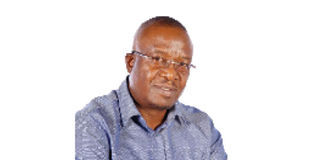Kabangala Asasudde: The social dilemma of trust (Part 1)

What you need to know:
This scenario is repeated so often in our societies these days to the extent that there is no more shame associated with the use of guile to cheat and hoodwink the society and individuals
BODANOMICS In the African setting, the fireplace served as a centre for learning and education, and for sharing wisdom and the ways of the world. One sat and listened with rapt attention to the elders (philosopher-sociologists) regale the family with conquests and calamities that befell their ancestors, how they dealt with taboos and how the next generation could be social betters. Many can recollect the exciting tales of how the small but cunning hare (‘wakayima’) overcame myriad enemies including the leopard, the elephant and the lion. How the slow tortoise won a race over the cunning hare. There was always a moral to these stories that addressed social dilemmas. One of the enduring fables, as told by my mother, was the story of ‘Kabangala Asasudde’.
“Kabangala’, as was the wont those days, was a native who used to buy goods from a one Patel (it had to be an Indian dukawallah) in Kampala. After a period of trading with Patel, he became a trusted customer. One day he went to the shop and tried on a new outfit which he propositioned to buy on credit. When the clerks were writing out his invoice, they asked him for his full names and he told them it was “Kabangala Asasudde”. After a while, ‘Kabangala’s” account became delinquent and Patel took him to task to pay up his account. In response, ‘Kabangala’ told Patel that he had actually paid; his name was Kabangala, and in the local lingua, the word ‘asasudde’ meant Kabangala had ‘paid’. In effect, he argued, he Kabangala owed Patel nothing!
This scenario is repeated so often in our societies these days to the extent that there is no more shame associated with the use of guile to cheat and hoodwink the society and individuals. We all do it without thinking through the long term consequences - from the topmost person you can think of to the humblest of the creatures in this neck of the woods. It is a way of life that not only erodes the concept of trust, but also increases transaction costs for every aspect of life.
One of my philosophy professors and his colleagues at the university undertook extensive research in this phenomenon. They called it ‘behavioural poverty’. They argued that culture plays a major role in development, as the psychological attitudes that determine human behaviour and interaction are usually rooted in the cultural environment. That the socio-psychological constitution of individuals and their actions are the key to determining livelihoods and influencing communities; and that, the shared values, knowledge, attitudes and expectations of a group or society - is vital for social cooperation and overall human-centered development (Munene, et al. (2004), Escaping from Behavioural Poverty in Uganda. The Role of Culture and Social Capital). What can be inferred from their work is that societies over time develop a set of shared values that determine what is important and what is not, and certainly trust and integrity rate low on our scale.
It is at this point that we arrive at the strange modern day case of Ham Enterprises and two others vs. DTB (U) and another, which has left tongues wagging. In this case, a Ugandan business obtained loans from a Kenyan bank, pledging securities in Uganda. When the loans went delinquent, the lender’s agent deducted monies from his accounts (sic). He claimed he had paid the loans and therefore was not liable. He took the matter to court where, following a series of devious applications, it was declared that the Kenyan bank was carrying on financial business in Uganda illegally. The businessman, on account of these and other illegalities was therefore entitled to compensation and restitution of his titles! Court rulings do not come any stranger than this one which has left the financial sector dizzy and bloodied. We shall return to the economic implications of the decision and the issue of mistrust next week. For now enjoy the modern fireplace.
Prof Sejjaaka is country team leader at Mat Abacus Business School.
[email protected]@samuelsejjaaka



